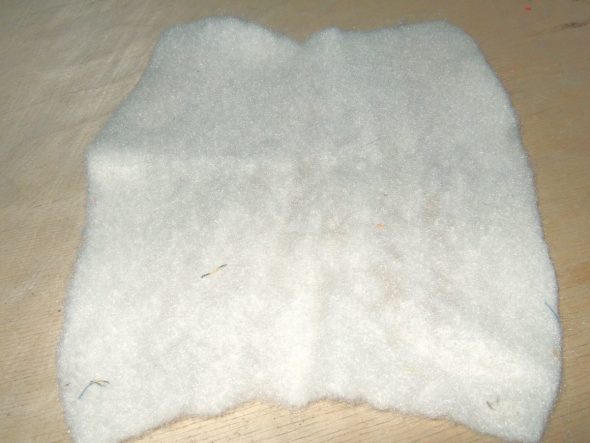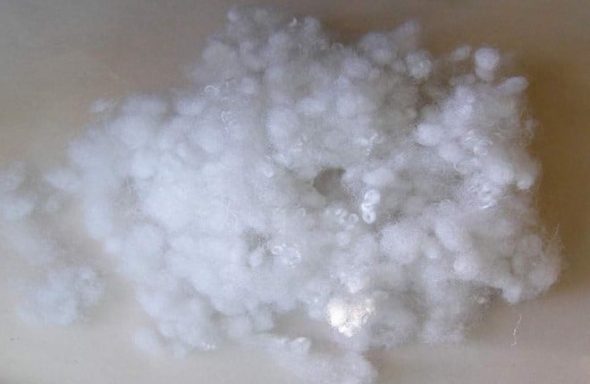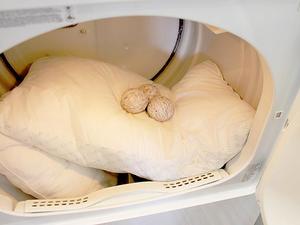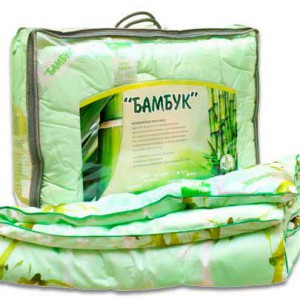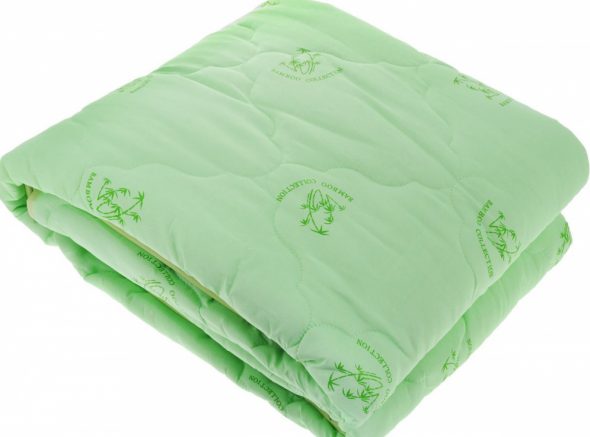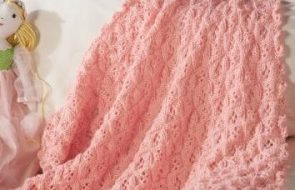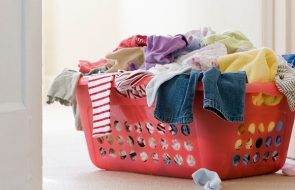According to modern science, the average person spends almost a third of their entire life sleeping. And the quality of sleep determines what the next day will be like. Will you enter it well-rested, refreshed and full of energy or exhausted from lack of sleep. And healthy sleep can only be in a cozy, soft, comfortable bed. Bedding, in particular a soft pillow and a light, airy blanket, make it so.
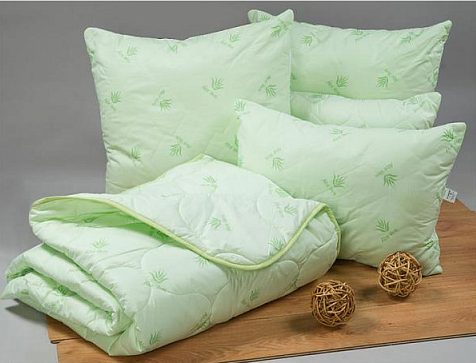
Therefore, it is necessary to approach the choice of these accessories with great responsibility, because they have serious responsibilities, and they will have to cope with these responsibilities. Naturally, people try to choose bedding according to their taste, but no one will argue that they must meet the physiological characteristics of our bodies, comfortable temperature conditions, and bed sizes. A large role in the arrangement of the bed is given to the blanket. How wonderful it is to wrap yourself in a light cloud of a weightless blanket. It should be warm enough, not press on the body, but we do not want to sweat under it. So let's try to find a super blanket at a low price.
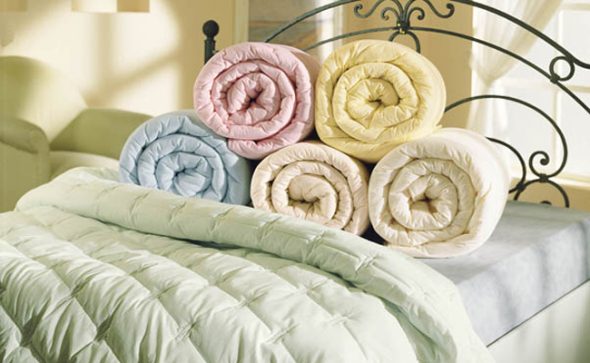
Content
How to choose a blanket
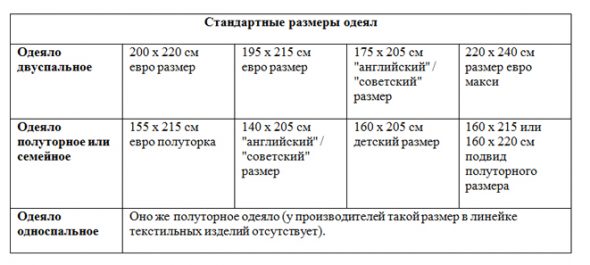
The main parameter that must be taken into account to make the choice of a blanket successful is the type of filler. Today, the market of bedding accessories is replete with a huge number of different fillers and new products are constantly appearing. It is difficult to make a choice without understanding them. Let's try to cope with the task and get acquainted with the most common types.

Fillers available on the market are divided into two large groups: synthetic and natural.
Synthetic fillers
You can get an idea of modern synthetic materials for filling blankets by getting acquainted with two types.
- The first type is made of polyester fabrics. These include the familiar holofiber, ecofiber, microfiber. These fibers have similar basic properties. Blankets with these fillers do not cause allergic reactions, do not fall out, hold their shape remarkably, retain heat well, are lightweight, can be easily washed, dry quickly and have a fairly long service life. But they have significant negative qualities. Synthetic materials absorb liquid disgustingly and quickly condense static electricity.
The holofiber blanket is practical and durable, safe and environmentally friendly. Ecofiber is similar in its characteristics to natural fluff, but does not attract dust and does not become a breeding ground for dust mites. - The second type of artificial fillers is Thinsulate, created as a substitute for natural swan's down. The name "swan's down" has stuck. This filler, like the synthetic fibers described above, is hypoallergenic, durable, practically weightless, does not require special care, and warms well. But in addition to the negative qualities of polyester fibers, which are also characteristic of swan's down, it would be fair to tell you about one more. Thinsulate does not allow air to pass through, which means that you can overheat when covered with such a blanket, which can be dangerous, for example, for babies. It will be hot under a swan's down blanket in the summer and cold in the winter. Perhaps this is an excellent choice for the off-season.
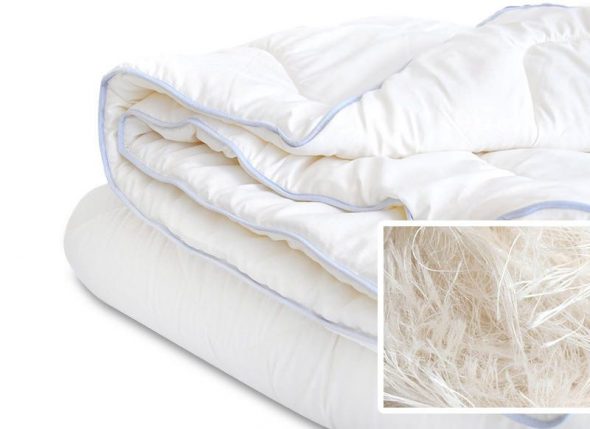
Bedspreads with artificial fillers are cheaper than natural ones. This makes them quite popular in the modern market.
Natural fillers
Now let's look at natural materials. These include bamboo and eucalyptus fibers, animal wool such as camels, sheep, goats, and bird down. Let's look at each of the mentioned fillers in more detail.
Let's start with bird down. The plumage of loons, ducks, and geese is used to make this filler. Bedspreads with filler made of loon down are the most expensive. Therefore, less expensive goose down is often used. In addition, it is not as heavy as duck down. Down blankets are good for use in northern regions. They have good warming qualities, allow air masses to pass through perfectly, and have high water absorption. They also have a record service life of up to twenty years. But there are some drawbacks here too. It's all about special care, which requires mandatory ventilation and dry cleaning. There is a risk of allergic reactions.
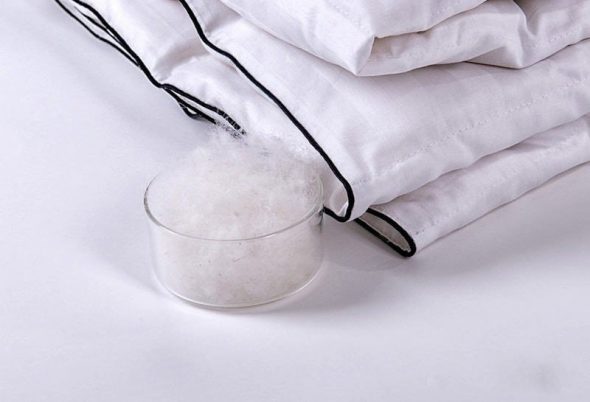
No less warm are woolen blankets filled with the wool of animals such as camels, sheep, and goats. In addition to the same advantages as down blankets, these blankets have a wonderful ability to relax tired muscles and relieve stress during sleep. Now about the disadvantages. This is, again, allergenicity and the fact that moths love to feast on wool. To increase the service life of the described blankets, careful care is necessary, consisting of airing and dry cleaning. Blankets with a filler made of wool of adult camels are unpleasantly prickly. Blankets made of camel wool are quite expensive. Sheep wool is cheaper than camel wool, but it has its own disadvantage: it can quickly cake, reducing the service life. In addition, blankets made of sheep wool are quite heavy.
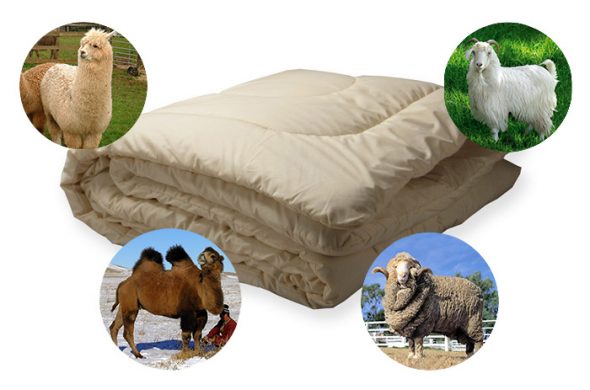
Well, now let's talk about natural fillers of the new generation. These are eucalyptus and bamboo fibers, which are plant materials.
Eucalyptus fiber is obtained by chemically treating the trunks of the eucalyptus tree. But no chemistry is used here. The solvent used in this method is of organic origin. The result is a light, smooth and very durable fiber with wonderful properties. Since the eucalyptus filler is porous, it allows air and water to pass through well. Under such a blanket, you can sleep comfortably and gain strength for a new day. Eucalyptus has antibacterial properties, so no harmful microorganisms will ever start in its fibers. For this reason, eucalyptus filler is suitable for children, allergy sufferers and sensitive people. And no static electricity.
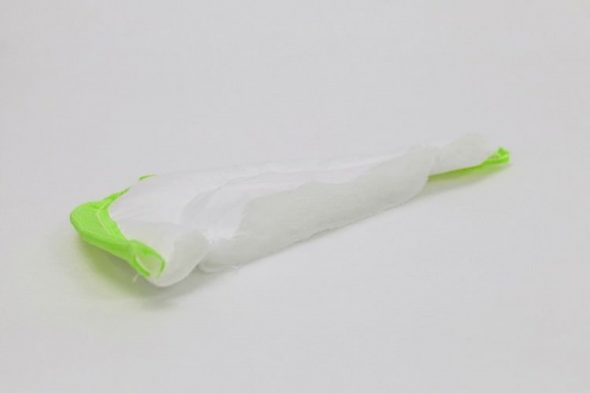
The advantages of products made from eucalyptus fibers include durability and easy care. Feel free to wash such a bedspread as often as necessary. Even a large number of washes will not affect its shape. The blanket dries instantly, which is convenient; you can wash it in the morning and it is ready to do its job in the evening. And one cannot help but pay attention to the healing power of the fibers, which they retain in the form of a filler, thanks to the preserved essential oils. Eucalyptus can not only cure headaches, relieve stress and nervous tension, but also perfectly restore muscle tone and improve blood microcirculation. Well, which woman does not dream of sleeping and becoming younger and more beautiful in her sleep? And this miracle is subject to eucalyptus fiber.
A eucalyptus blanket will help cure a cold. It also has another wonderful property of creating coolness in the heat. But one single drawback makes eucalyptus blankets unattainable for many people. This is the high cost of bedding accessories made of eucalyptus fibers. The fact is that everything is natural and high-quality and costs accordingly.
There is also a cheaper natural filler obtained from plants, which has confidently entered the consumer market - this is bamboo fiber. Its wood has long been a part of people's lives. Many things for the home, paper and even food are made from it. But for the production of fibers used in light industry, bamboo wood began to be used relatively recently. In a relatively short period of time, they have won the hearts of people and have become in high demand.
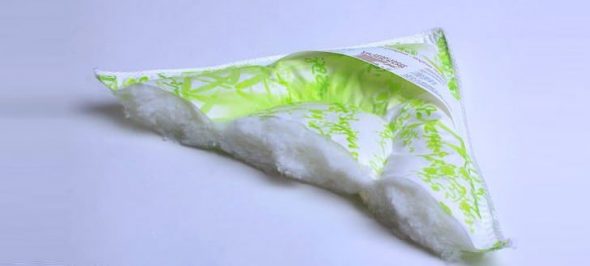
Today, any store offering bedding accessories is replete with products made from this wood. This is not a tribute to fashion. These bedspreads have proven themselves on the positive side. They have many advantages. Of course, some advantages are invented and far from reality. What in the stories about bamboo bedspreads is true and worthy of attention, and what is fiction? Let's analyze. Any biologist will say that the diversity of bamboo is great, and it can be found in almost all corners of the Earth. However, in the light industry, trees growing in tropical and subtropical forests are preferred.
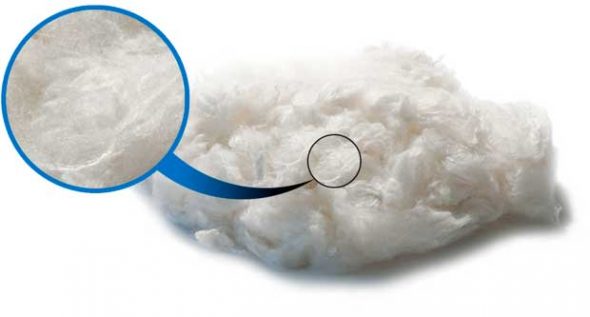
How is bamboo filler obtained?
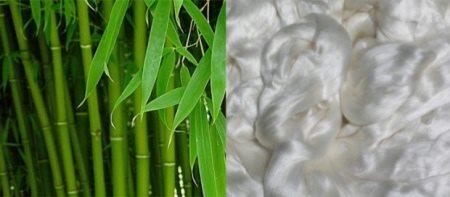
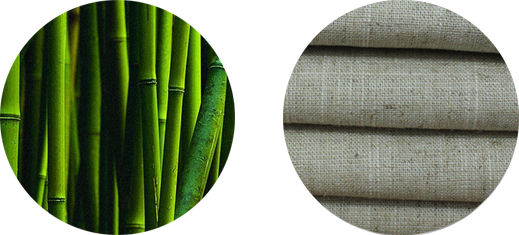
Raw materials from tree trunks are produced in two ways: chemically and mechanically.
Considering that bamboo is not susceptible to any diseases, is not damaged by insects, and does not need fertilizers throughout its long life, the mechanical method produces environmentally friendly fibers. It is taken into account that only natural means are used for production. How is the lightest material obtained from wood? Plants are crushed, softened by adding a natural substance, and then long, even and very strong webs are combed out of the mass obtained as a result of these manipulations with large metal combs. The mechanical method is expensive, since all stages are carried out manually, and the amount of material obtained is negligible.
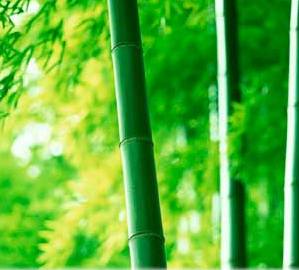
The chemical method produces incomparably more raw materials, but this method uses various chemical reagents. At the first stage, cellulose is obtained by processing the crushed bamboo mass with sodium hydroxide. Then it is pulled through plates with tiny holes, pulling out thin and long hairs, which are treated with carbon disulfide and bleached. At the final stage, the fibers are washed many times in order to remove residual chemicals. This method cannot be called environmentally friendly, but it is inexpensive, unlike the mechanical one. Visually, the fibers obtained by different methods are almost indistinguishable, but information about this is provided by the manufacturer.
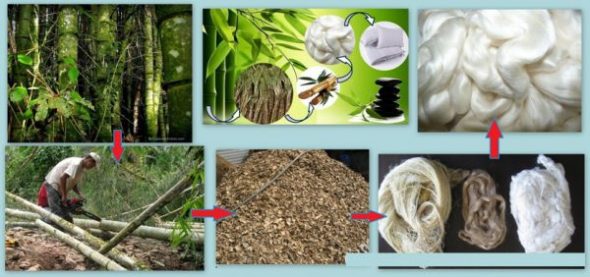
Advantages of bamboo blankets
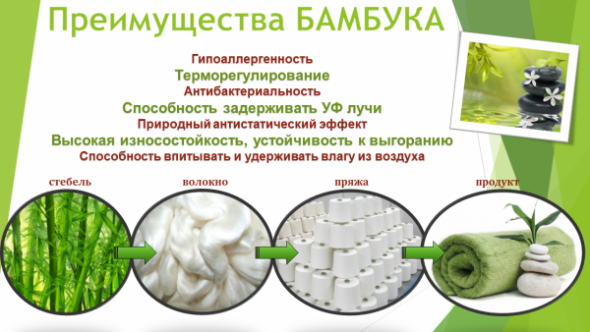
Bamboo blankets have many advantages.
- Despite the fact that chemicals are used in the production of raw materials, the resulting product does not contain toxic substances and is therefore environmentally friendly.
- They are easy to care for, but some subtleties noted on the label should still be observed. A bamboo blanket can be machine washed, but choose a delicate cycle, adding a little powder.
Machine washing should be done on a gentle cycle. - Spinning is preferable at low speeds, and drying on a horizontal plane. It will dry quite quickly and will not lose its shape.
The recommended washing temperature is not higher than 40 - Twisting, bleaching and ironing are contraindicated. When folded, the product will take up little space.
- Bamboo threads do not accumulate foreign aromas or static electricity. No microorganisms will start in them, so they are hypoallergenic.
The bamboo blanket does not accumulate unpleasant odors, but has a slight deodorizing property. - Due to the porous structure, bamboo fibers do not accumulate liquid, have good air permeability and natural thermoregulation.
- Bamboo blankets are very light.
Myths or truth
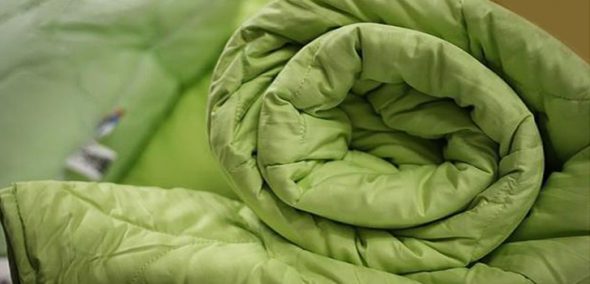
It is not uncommon to hear that a bamboo blanket has healing properties, can rejuvenate a sleeping person, relieve nervous tension, stress. For advertising purposes, its deodorizing effect is described, and bamboo fibers contain various vitamins, amino acids, and pectins. These properties of bamboo material have not been proven. It would be fair to call such statements “myths”.
Bamboo blankets are not as warm as wool or down blankets and are not as durable. Such a blanket will last no more than four years.
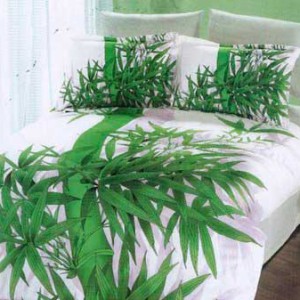
Choosing the Right Bamboo Blanket
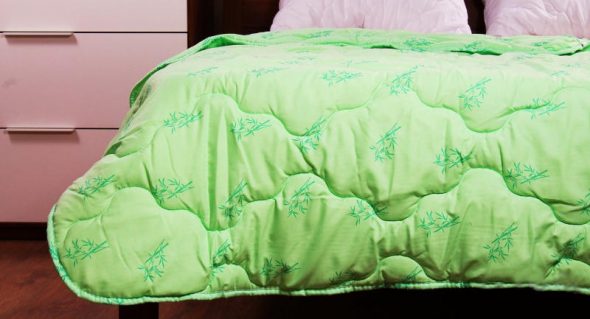
However, if you carefully select the product, it will please you for a long time. When choosing a bamboo blanket, first of all pay attention to the cover. Choose natural fabrics. An artificial cover shell can reduce to zero all the wonderful qualities of the bamboo filler. Pay attention to how the cover is sewn. Are all the lines even? In order for the cover to hold its shape well, a piping should be sewn along its perimeter. It is important how the blanket is quilted. It is good if it is in a cage and denser.
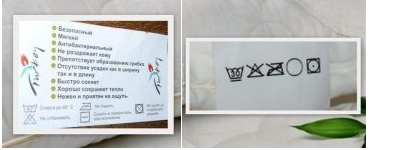
It should be noted that in the modern market, finding a blanket made entirely of bamboo fiber is a very difficult task. The fact is that 100% bamboo filler is soft and does not hold its shape well. Therefore, to obtain an elastic material, artificial fibers are added to natural ones, the amount of which can reach 70%. The so-called mixed fillers are obtained. The less synthetics in their composition, the more expensive the blanket will be.
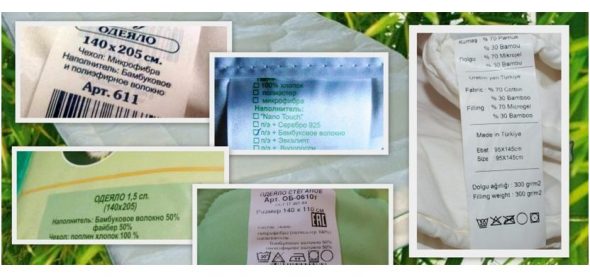
When choosing, carefully study the composition of the filler. To ensure that your blanket lasts at least four years, choose a high-quality artificial addition. It is better if it is holofiber or ecofiber, and then in small quantities.
If you take into account all the previously described recommendations when choosing a bamboo blanket, you will undoubtedly buy a wonderful inexpensive blanket that will warm you on cold nights, and you will not be hot under it. With such a blanket, the bed will be cozy, sleep sound, and you will be rested and ready to meet a new day.

